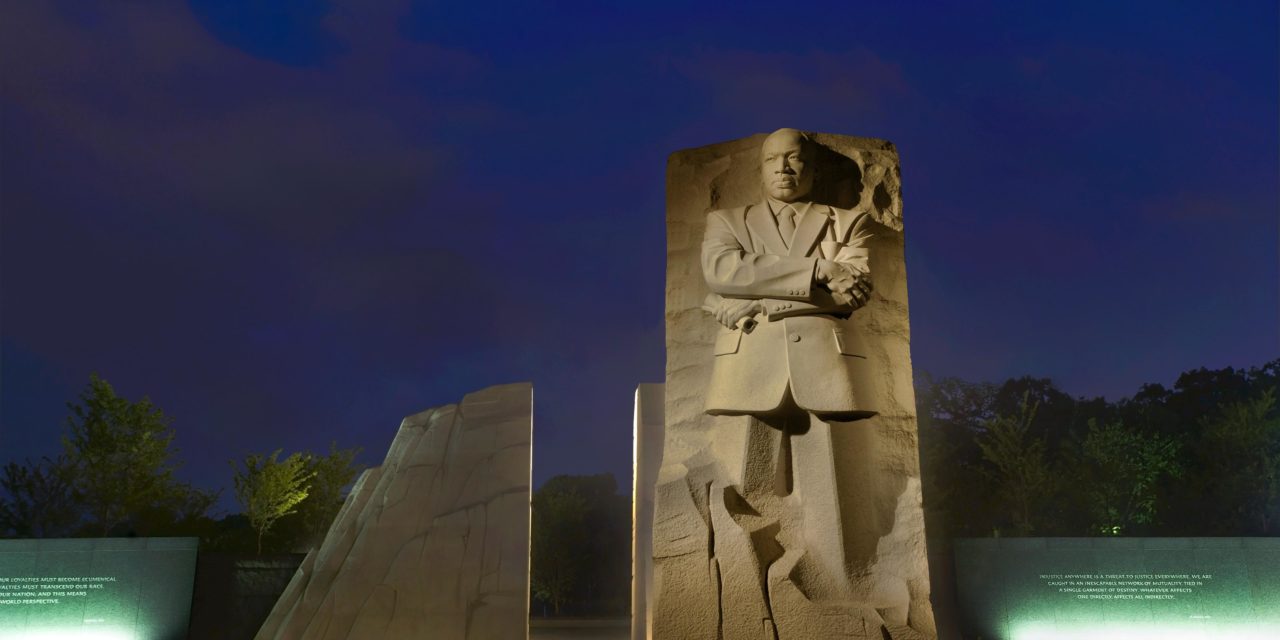“Our lives begin to end the day we become silent about things that matter.”
~ Martin Luther King Jr.
Martin Luther King Jr. was an American Baptist minister and activist who became the most visible spokesman and leader in the American civil rights movement from 1955 until his assassination in Memphis, Tennessee in 1968. His nonviolent resistance to the inequities of America, including segregation and unequal voting rights became the hallmark of the civil rights movement.
King championed the Civil Rights Act of 1964 (Pub. L. 88–352, 78 Stat. 241), enacted July 2, 1964. This landmark civil rights and labor law in the United States outlaws discrimination based on race, color, religion, sex, national origin, and later sexual orientation and gender identity. It prohibited unequal application of voter registration requirements, racial segregation in schools, and public accommodations.
In 2013 in a 5-4 decision, the U.S. Supreme Court struck down aspects of the 1964 Civil Rights legislation, that required certain states and localities with a history of discrimination against minority voters to get changes cleared by the federal government before they went into effect. The power of the Voting Rights Act was in the design that the Supreme Court gutted – discriminatory voting policies could be blocked before they harmed voters.
Almost immediately after the decision, Republican lawmakers in Texas and North Carolina – two states previously covered by the law – moved to enact new voter ID laws and other restrictions, and in the months since the 2020 election, more than 400 voting rights restriction bills have been proposed across more than 23 states. In fact, between 2012 and 2018, there were 1,688 polling place closures in states previously covered by section five of the Voting Rights Act, according to a report from the Leadership Conference on Civil and Human Rights.
When the Supreme Court struck down important aspects of the 1964 bill, it invited Congress to rewrite portions of it to clarify the rights it had declared unconstitutional: Congress could restore the full power of the law by coming up with a new formula to determine which places need to submit their voting changes for pre-clearance. Eight years later – Democrats in Congress are still trying to do that, with growing Republican opposition.
The two intertwined voting rights bills – The Freedom to Vote Act and the John Lewis Voting Rights Act, that have been passed by the U.S. House of Representatives, await any action by the U.S. Senate. Together it could be said that these two bills represent the future of our country; whether America will remain a democracy, or become some version of authoritarianism, with a white supremacist-leaning minority deciding not only who votes – but which votes will count.
Standing in the way of this federal legislation to protect the voting rights of all, in addition to Senate Minority leader Mitch McConnell, and a solid block of Republicans is the filibuster rule; a 60-vote threshold that through decades of machinations has become the way in which an actual minority of the country can block the will of the majority.
As we mark this day, in a week when Senate Majority Leader Chuck Schumer will bring these voting rights acts before a Senate vote where they are expected to fail — what AVV calls a vote of shame — consider the cost of silence.
In elections later this year, and in coming years, the votes that may not be counted may not just be the votes of minorities — they may include your vote.
Feature image: The Martin Luther King Jr. memorial in Washington D.C. Image courtesy of Washington.org.









Recent Comments